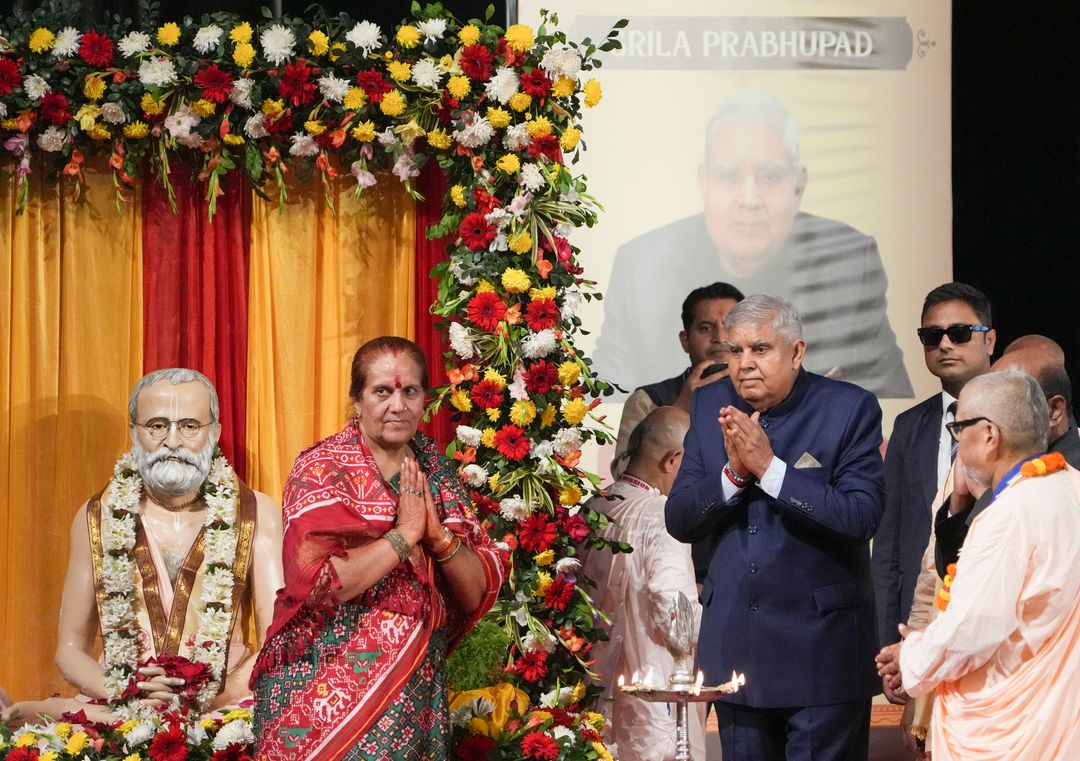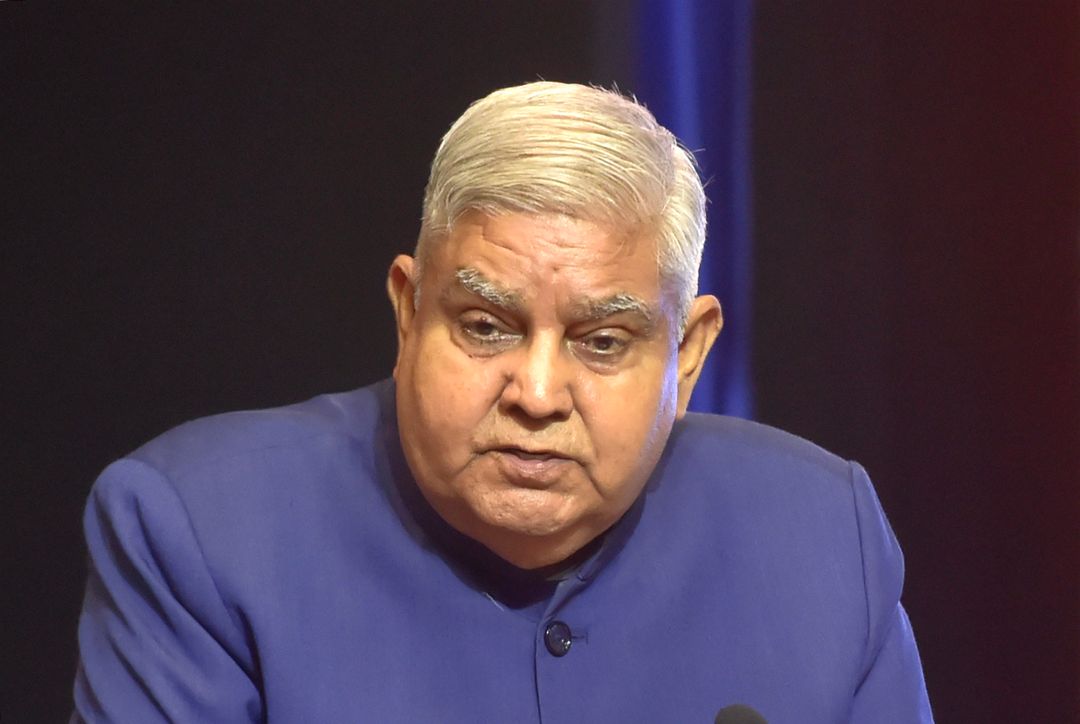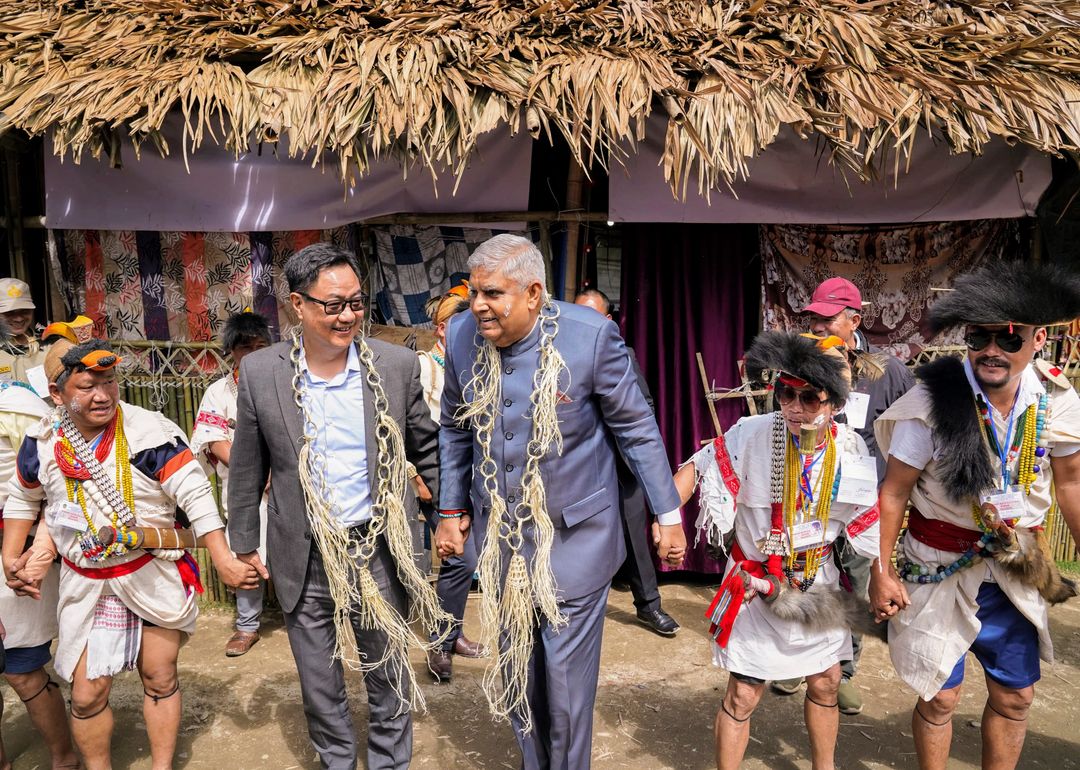
Kolkata, Feb 28: Vice President Jagdeep Dhankhar underscored India’s deep spiritual roots and ancient civilization, asserting that the country’s foundation is built on Sanatan Dharma. Speaking at the closing ceremony of the 150th birth anniversary celebrations of spiritual leader Acharya Srila Bhakti Siddhanta Saraswati Goswami Prabhupada, organized by the Gaudiya Mission in Kolkata, Dhankhar expressed confidence that India is on its way to becoming the ‘Vishwa Guru’ (world leader).
Highlighting the significance of Sanatan Dharma, he stated, “Sanatan stands for inclusivity, universal values, patriotism, and transcending caste, creed, and economic divisions.” He emphasized that India has long been a global beacon of non-violence, peace, and brotherhood, contributing significantly to spiritual and philosophical thought.
India’s Enduring Spiritual and Cultural Heritage
Reflecting on India’s 5,000-year-old heritage, Dhankhar remarked, “No other country in the world possesses such an ancient and continuous civilization. India has always been the spiritual center of the world, and we must carry this legacy forward.”However, he lamented the setbacks India faced nearly 1,000–1,200 years ago when renowned centers of learning like Nalanda and Takshashila were destroyed. He stressed that despite these attacks, India’s cultural and spiritual essence remained unshaken. “We have endured barbarity and unimaginable hardships, yet we have emerged stronger. Today, India is on a path of growth and progress, and spiritual development is at its core.”
Acknowledging Spiritual Luminaries and Bengal’s Contribution
The Vice President acknowledged India’s spiritual and philosophical influence on the world, citing figures like Sri Ramakrishna, Swami Vivekananda, Sri Chaitanya, and Srila Prabhupada as key contributors. He also paid tribute to Bengal’s rich history in spearheading spiritual, cultural, and nationalistic movements.“Bengal has given birth to remarkable figures like Khudiram Bose, Chittaranjan Das, and Shyama Prasad Mukherjee. Their contributions, whether in the freedom struggle or in shaping India’s spiritual and nationalist ideals, remain invaluable.”
Dhankhar praised Srila Prabhupada for his inclusive approach, emphasizing that his teachings rejected societal divisions and embraced all sections of society. He noted that UNESCO’s recognition of Prabhupada’s 150th birth anniversary as a culturally significant event highlights the world’s acknowledgment of India’s spiritual heritage.
Sanatan Values and the Role of Dharma
Discussing the importance of India's ancient scriptures, Dhankhar drew lessons from the Ramayana and Mahabharata, stating, “Our epics teach us that when you fight for truth, you will always triumph. True dharma never advocates fighting for personal gains, but rather for righteousness.” He stressed that nationalism (rashtravad) is deeply embedded in India’s dharmic principles.Urging people to embrace spirituality and mutual respect, he regretted that “some individuals fail to recognize our spiritual heritage and attack religion with a narrow mindset.” He reiterated the importance of self-defense, citing the Bhagavad Gita, and urged the younger generation to be proud of India’s rich traditions.
Governor C V Ananda Bose on Bengal’s Spiritual Legacy
Governor C V Ananda Bose also praised the Gaudiya Mission’s contributions and Srila Prabhupada’s pioneering role in social and religious reforms. He emphasized Bengal’s legacy in producing spiritual and reformist leaders, reciting Rabindranath Tagore’s ‘Banglar Mati Banglar Jol’ to highlight the state’s deep-rooted cultural heritage.The event, attended by spiritual leaders, scholars, and devotees, served as a reaffirmation of India’s spiritual and cultural strengths, with calls to uphold the values of Sanatan Dharma and carry forward the nation’s rich traditions.

